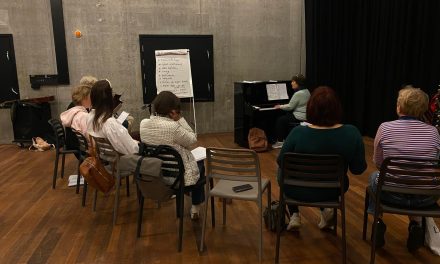In its own words, the European Union “has made significant progress in gender equality over the last decades. This is the result of equal treatment legislation, gender mainstreaming, and integration of gender perspective into all other policies and specific measures for the advancement of women”. Gender equality and a 50-50 gender balance goal remains a hot topic today, with many different opinions surrounding the issue of women being underrepresented in both politics and public life in the European Union.
The European Union has set the Gender Equality Strategy, which has run from 2020 and will do so until 2025. This strategy consists of policy objectives and actions, in order to work towards a gender-equal Europe. The goal: “a Union where women and men, girls and bots, in all their diversity, are free to pursue their chosen path in life, have equal opportunities to thrive, and can equally participate in and lead our European society”. One of the Strategy’s key objectives is to achieve a gender balance in decision-making and politics.
The EU positions itself as a progressive union, which has made gender equality one of its top priorities today. But what about the conservative perspective?
Michiel Hoogeveen is a Dutch Member of the European Parliament and a member of the European Conservatives and Reformists Group. In his home country, he is a member of the right-wing conservative party JA21. Mr Hoogeveen has been involved in legislation processes surrounding the improvement of gender equality in the European Union. What is his stance on gender equality in the EU, coming from a conservative environment?
“In terms of gender equality, I think we have to look at multiple aspects”, mr Hoogeveen explains. “Do we have equal rights and is everybody equal to the law? I think that’s very much the case. There has been a strong movement that has improved women’s rights.” However, Mr Hoogeveen argues that improvement is indeed still required in certain fields, but that this should be the responsibility of EU member states. “I think family law and gender rights is a competence that should be exclusive to the member states to make policies on that.”. This aligns with the political position of the Conservatives and Reformists Group: political responsibility should be with the member states, rather than Brussels having full control.

When asked whether a 50-50 gender balance in the EU is desirable, but also feasible, mr Hoogeveen argues that this is not the case. “That probably wouldn’t surprise you”, he says. “While I do think that it’s good that more women are involved in politics, I believe that men can also represent women and the other way around. I don’t necessarily see it as something that you should force politicians upon”. Equal representation should come from the bottom up and should not be forced from above.
Furthermore, Mr Hoogeveen argues that inequality in the EU has been partially reversed: women are overrepresented, rather than men. “Many progressive politicians strive for equality and not necessarily equal opportunities. There are certain areas where women have excelled a lot, for example in medicine”. Mr Hoogeveen continues to provide examples on the distorted balance between men and women: he argues that it’s easier for women to obtain an internship and men are fired from their jobs more often. Moreover, suicide rates among men are higher.
While significant progress on gender equality has indeed been made, several member states are still lacking in terms of equal representation and treatment of men and women in national government institutions; a trend that is mostly visible in central and eastern countries such as Poland, Romania, the Czech Republic and Hungary. Is EU legislation on the improvement in the entire Union necessary after all? No, says mr Hoogeveen. “Something we should not ignore is a characteristic of politics is that you need certain trademark characteristics to exceed in politics”. Politicians should be Machiavellian, outspoken, bold. Men are more likely to have these characteristics, while women are more empathetic. “Does that mean that women should not have an equal opportunity to excel in politics? I’m all for women in politics. But again, if you want to excel in politics, you need to have certain characteristics, and if you don’t have them, well, then you’re not suited for politics”.
Listen to the interview here:




